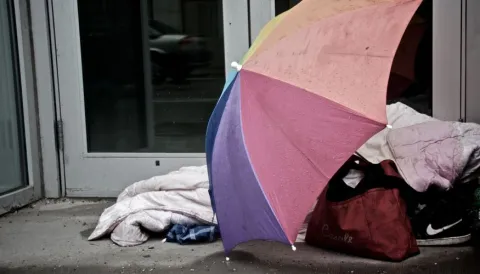Better housing policies needed in a post-COVID world

UBC report highlights gains but calls for longer-term solutions to improve housing supply
COVID-19 proved that governments can respond quickly to improve housing during a health crisis. The next step should be to build on these gains to make long-lasting improvements in the housing supply.
These are the highlights of a new global housing policy report released today by researchers at UBC’s School of Community and Regional Planning. The report compiles housing policy responses to COVID-19 in 14 countries on six continents, as well as insights from housing policy scholars, organizations and advocates around the world.
“The pandemic is not only a health or economic crisis, it is also a housing crisis that revealed the gaping cracks in our housing supply,” says the project lead Penny Gurstein, a professor of planning at UBC and director of the Housing Research Collaborative. “In Canada and elsewhere, deaths from COVID have been clustered in places where people cannot physically distance because of overcrowding, where they don’t have adequate access to clean water, toilet facilities and even medical services.”
The team acknowledged the fast response by many governments to resolve critical housing situations as COVID worsened. For example, in England, thousands of homeless people were placed in hotels while South Africa converted schools and stadiums into shelters. Other rapid responses include rental subsidies and eviction bans, such as in British Columbia.
“These rapid responses clearly showed how much you can do with sufficient political will,” said Gurstein. “But we’re more excited by what our global scan revealed to be good policies and strategies by different governments that can lay the foundation for building back stronger after the pandemic.”
She noted a number of practices and policies with the potential for lasting change, including:
- In Portugal, where 90,000 vacation properties lie vacant and one in three rental apartments in central Lisbon is used as a short-term vacation rental, the local government has pledged to sign up to 1,000 long-term leases for rent-restricted housing.
- California is supporting right of first refusal for residents, which gives tenants and community organizations the right to make first offers on renter-occupied homes — protecting housing stock from speculative investors.
- Canada has developed a $1 billion new rapid housing initiative to support social housing providers and local governments to acquire buildings and create modular supportive housing for homeless people.
Report author Carolyn Whitzman, a housing policy analyst and adjunct professor at the University of Ottawa, said COVID-19 can be a turning point for the right to adequate housing.
“We need to learn that housing is so integral to all other aspects of a vibrant society and economy. If you live in insecure housing, your health is affected, your family is affected, your autonomy is affected. In Canada, we have a high number of homeless people and that should not be happening in a society like ours. By supporting people in vulnerable housing situations, we can help the whole of society,” said Whitzman.
And the time to act is now, added Whitzman. “All levels of government in all countries need to make better choices in order to redress systemic housing inequalities that have been both exposed and amplified by COVID-19. We need to act sooner rather than later, if we are to be positioned to fight future crises and pandemics.”
The report and its accompanying database are the result of roundtables funded by the Peter Wall Institute for Advanced Studies at UBC, which brought together housing researchers and advocates from across Canada, as well as 10 other countries.
Photo: Colin Davis/Creative Commons


